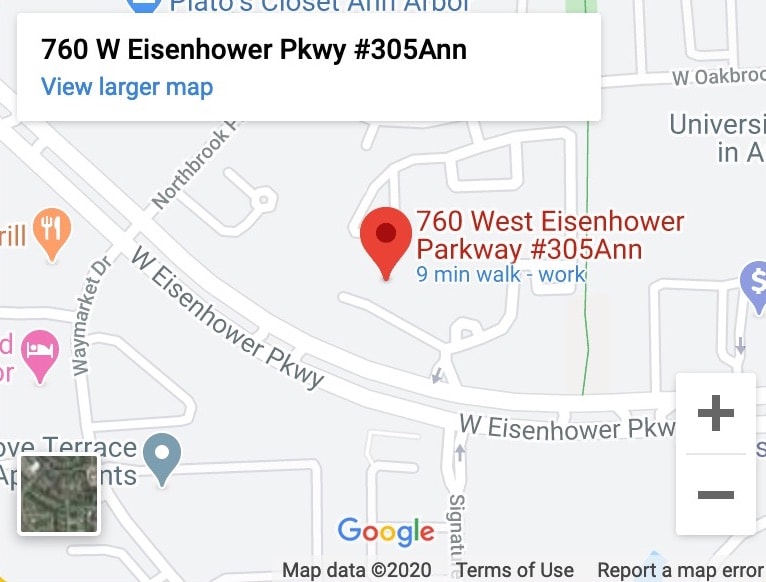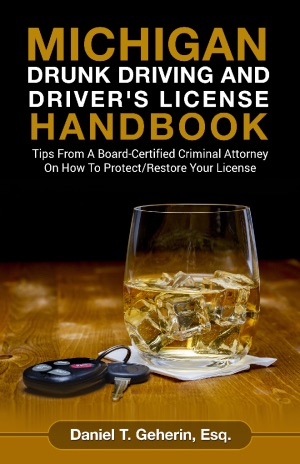Why Can’t an OWI/DUI Conviction be Expunged?

On September 24 2020, the Michigan legislature sent a package of bills (collectively referred to as the “Clean Slate Initiatives”) to the Governor which would expand expungement eligibility for thousands of Michigan residents who have been convicted of certain crimes. The laws will: lessen waiting times; make some charges automatically erasable; expand the number of convictions eligible; and shelter some juvenile cases from public view. What’s missing from this new package of bills? OWI/DUI Expungement.
Michigan Expungement Eligibility Laws have always specifically excluded those offenses within the Motor Vehicle Code (Chapter 257 of the Michigan Complied Laws). People who are convicted of OWI (for alcohol, controlled substances, or a combination of both) can’t even seek expungement because these offenses fall under the wide umbrella of MCL 275.625. This new package of laws continues to exempt OWI offenses, despite its stated goal of removing barriers for Michiganders who have trouble finding or keeping jobs, earning a promotion, or obtaining other collateral benefits.
Attorney Daniel T. Geherin, a board-certified formal prosecutor, defends OWI/DUI cases throughout Southeastern Michigan. He’s the author of The Michigan Drunk Driving and Driver’s License Restoration Handbook, and is recognized as a license appeals specialist in Ann Arbor and throughout Michigan. Every day, Dan has to break the bad news to clients and their families that an OWI/DUI conviction/plea may never be expunged or removed from their criminal or driving record. He’s often met with these questions:
“Is OWI a Misdemeanor Crime?”
“Can I have a diversion or delayed sentence to avoid an OWI conviction on my record?”
“How long will this conviction be on my public record?”
“Will there ever be a change in the expungement laws to allow me to remove this OWI?”
Unfortunately, OWI/DUI is either a misdemeanor or felony under Michigan law. A person who is arrested for OWI has to provide fingerprints and a comprehensive criminal history report (“CCH”) is generated. This CCH report can easily be accessed by the public via State Police websites and other background search sites. And, if a person either pleads guilty or no contest to the charge, or is found guilty at trial, the CCH reveals a conviction. That conviction can never be removed, and will remain on a person’s CCH for the rest of his or her life unless Michigan changes its expungement eligibility laws. There are no available diversion/delayed sentence programs for OWI/DUI, so there’s no way to “earn” the dismissal of the conviction after a period of probation like there is for many other criminal offenses.
This is devastating for a person with no other criminal record. From Mr. Geherin’s perspective, OWI is the type of offense that snares really good people who often just make a mistake—their first and only dive into the criminal justice system. Yet that first dive often becomes life-altering because people are forced to reckon with that conviction professionally, personally and economically.
Why is this? Why are OWI/DUI (and other motor vehicle offenses) treated so much more harshly than others? After all, aside from criminal sexual conduct offenses and the most serious capital or life-maximum offenses like murder, virtually every misdemeanor and felony offense in Michigan can be either expunged or diverted from a person’s record. It seems like lobbying efforts by auto insurance companies and victim’s groups like MADD have had the most major impact.
If you’ve been charged with an OWI/DUI in Michigan, the best way to avoid a lifetime conviction on your record is to avoid a conviction in the first place. Dan and his team at Geherin Law Group in Michigan have won many OWI cases over the past 23 years, either through pre-trial litigation or at trial. Dan is a board-certified criminal defense and licensing lawyer in Ann Arbor who has conducted over 250 trials, many of which were drunk driving allegations. The firm stays on top of constantly changing OWI laws/regulations, and Dan is a frequent lecturer and contributor in the field of OWI defense at the Institute of Continuing Legal Education.
For more information about OWI in Ann Arbor and throughout Michigan, please visit the firm’s websites at GLGMichigan.com, and MiLicenseLawyer.com, or call 24/7 at (734) 263-2780.
Geherin Law Group, PLCC, a criminal justice law firm dedicated to personal justice.

